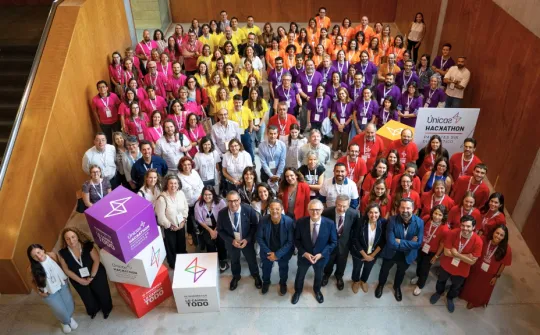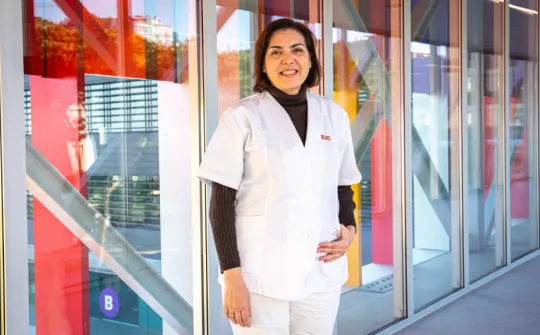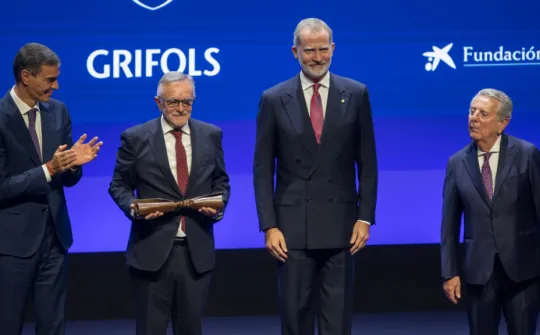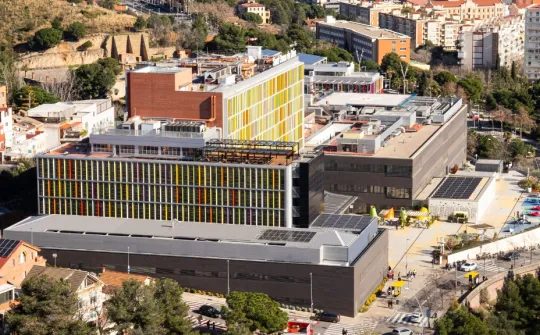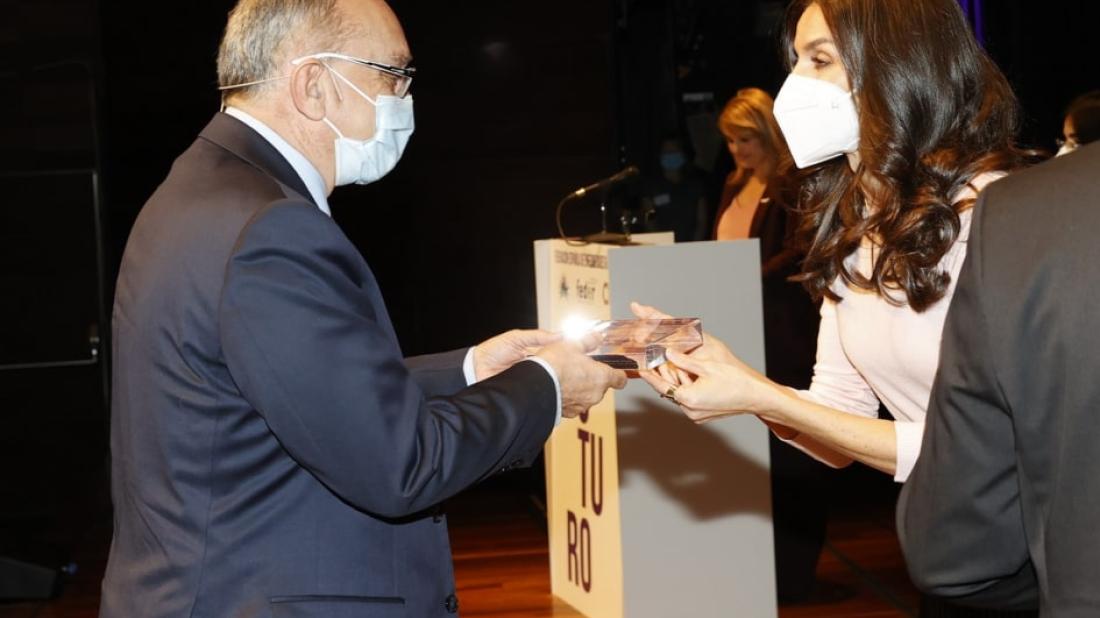
Casa de Sofia and the Únicas network, projects driven by SJD Barcelona Children's Hospital, receive the FEDER (Spanish Federation of Rare Diseases) 2022 Recognition award in a ceremony presided over by Queen Letizia.
The organisation Casa de Sofia and the Únicas network, projects driven by SJD Barcelona Children's Hospital, have been honoured with the FEDER 2022 Recognition award with which the Spanish Federation of Rare Diseases recognises innovative initiatives that contribute to ensuring equitable access to resources and involve the participation of affected patients. Queen Letizia gave the award to the managing director of SJD Barcelona Children's Hospital, Manel del Castillo, and to one of the leaders of Casa Sofia, Jordi Cruz, during a ceremony held in León on 15th March.
Casa de Sofia is the first care centre in Spain for children with complex chronic illnesses and/or advanced diseases. Its objective is to avoid the unnecessary admission of these patients to acute-care hospitals, delaying possible long-term hospitalisation as far as possible by means of a clinical and organisational approach that makes it possible to achieve clinical stability or the necessary functional improvement.
This facility is part of the Únicas network, a project created to fill in the gaps in the healthcare systems of Spain and the rest of Europe in the area of rare paediatric diseases and to provide comprehensive care to the children affected. Two in every three people with a rare disease are diagnosed before the age of two with a highly complex, progressive and disabling chronic disease that makes them highly vulnerable and dependent on the health and social care system.
The Únicas network is based on collaboration and cooperation between 21 Spanish children's reference hospitals; national and international supporting entities such as universities, research centres, pharmaceutical companies, medical technology firms and charities; and a large network of European hospitals.
Through this collaboration, the Únicas network provides solutions to address the complexity posed by the diagnosis of rare diseases, guarantees that each patient has access to a centre that specialises in their disease, regardless of where they live, and brings together enough case studies on these diseases to generate knowledge and advance research.
It also seeks to make up for the lack of health and social care mechanisms to handle chronic diseases and those treated in the paediatric setting through facilities like Casa de Sofia, which opened this February in Barcelona.
A reference hospital in every region
The Únicas network is described as a network of hospitals that currently consists of a reference hospital in each autonomous region, all with experience in monitoring rare diseases in paediatric patients.
The network's central hub is located at SJD Barcelona Children's Hospital, the Spanish centre that treats most children with rare diseases. It is currently following up on 22,695 patients with such diseases. This hub also incorporates a group of leading institutions in different areas of knowledge: diagnosis, therapies, telemedicine and data intelligence. Moreover, it benefits from the collaboration of the ECHO (European Children's Hospitals Organization) network, which has expressed its interest in participating in the shared data programme on paediatric rare diseases.
Six rare diseases programmes
The hub of the Únicas network is set to lead six programmes that will be undertaken jointly with affiliated centres. The projects that have already been launched involve the Instituto de Atención a la Cronicidad [Institute for Chronic Disease Care], Casa de Sofia (in the form of the creation of a health and social care centre and including a home mechanical ventilation support centre) and a school for patients and families.
Through this network, specialist programmes are being promoted in different areas relating to rare diseases: diagnosis (precise, personalised, early and predictive); fostering innovative therapies; data intelligence (working towards personalised models for prediction and prevention); the development of telemedicine (to provide urgently and planned synchronous care support) or the Pediatric Institute for Rare Diseases (IPER), with a focus on creating a 360° comprehensive care model for affected patients.
